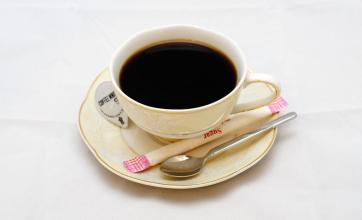Introduction of Ethiopian Coffee beans
Ethiopian beans are easily recognizable. Most of the beans are small and pointed long beans, the so-called 'longberry', and often mixed with small oval-shaped short beans, the so-called' shortberry', looks uneven in size and uneven in appearance. The commercial bulk beans of Grade4 or Grade5 are mostly mixed with hundreds of different crystal seeds in different producing areas, so the phenomenon of uneven phase of beans is the most obvious, and it is not easy to bake evenly.
Even the official research unit of Ethiopia does not know how many Arabica subspecies there are in Ethiopia. The coffee cooperatives in this mountain are certainly different from those planted in another mountain, and even small farmers in the same region grow different varieties of coffee. It has been estimated that there are at least 2000 varieties of Ethiopian coffee and even more than 4500 kinds of coffee. Compared with the fat posture of Bourbon 'SL28', the main variety to the south of Kenya, or Tibica in Central and South America and Asia, Ethiopian beans look a little malnourished. But "beans" can not be seen, Ethiopian coffee has the most citrus aroma in the world, whether it is instant coffee or freshly ground coffee, you can smell the aroma of orange or lemon when you extract it. The nose is characterized by strong floral, fruity, sour and sweet aromas, but the alcohol is slightly thicker or less dense. The biggest disadvantage is that it is easy to bake unevenly, especially sun-dried beans. Even the best Grade3 Harald sun-dried beans often show uneven color, which is the biggest defect of Ethiopian beans, but the good thing is that it does not affect its good flavor. For coffee fans, you don't have to worry about what the beans look like, it's the most important thing. The stability of Ethiopian water-washed beans is much better than that of sun-dried beans, whose flavor fluctuates greatly every year, so be sure to test it several times before buying in large quantities. If you buy good sun-dried beans, their flavor is much deeper than water-washed beans, but if you buy improperly handled sun-dried beans, it will certainly make people speechless, which is the voice of many coffee fans.

Important Notice :
前街咖啡 FrontStreet Coffee has moved to new addredd:
FrontStreet Coffee Address: 315,Donghua East Road,GuangZhou
Tel:020 38364473
- Prev

Introduction of Burundian Coffee Flavor, characteristics and producing areas
Characteristics of Burundi Coffee: Burundi (Burundian) has the most diverse and successful coffee industry in the world, and has its own characteristics. Burundian coffee is fragrant and has excellent acidity. Flavor: mellow taste, rich aroma, excellent acidity suggested baking method: medium to deep roasting ★★: good Burundian coffee market: Burundian coffee
- Next

The Flavor characteristics of African Kenyan Coffee beans the origin of the acidity of Kenyan coffee
Italian coffee: with a strong aroma and strong bitter taste, the surface of the coffee and a thin layer of coffee oil, this oil is the source of the attractive aroma of Italian coffee. Suitable for those who pursue a strong sense of taste. Java coffee: from the Indonesian island of Java, full-grained, spicy, relatively acidity
Related
- Does Rose Summer choose Blue, Green or Red? Detailed explanation of Rose Summer Coffee plots and Classification in Panamanian Jade Manor
- What is the difference between the origin, producing area, processing plant, cooperative and manor of coffee beans?
- How fine does the espresso powder fit? how to grind the espresso?
- Sca coffee roasting degree color card coffee roasting degree 8 roasting color values what do you mean?
- The practice of lattes: how to make lattes at home
- Introduction to Indonesian Fine Coffee beans-- Java Coffee producing area of Indonesian Arabica Coffee
- How much will the flavor of light and medium roasted rose summer be expressed? What baking level is rose summer suitable for?
- Introduction to the characteristics of washing, sun-drying or wet-planing coffee commonly used in Mantenin, Indonesia
- Price characteristics of Arabica Coffee Bean Starbucks introduction to Manning Coffee Bean Taste producing area Variety Manor
- What is the authentic Yega flavor? What are the flavor characteristics of the really excellent Yejasuffi coffee beans?

